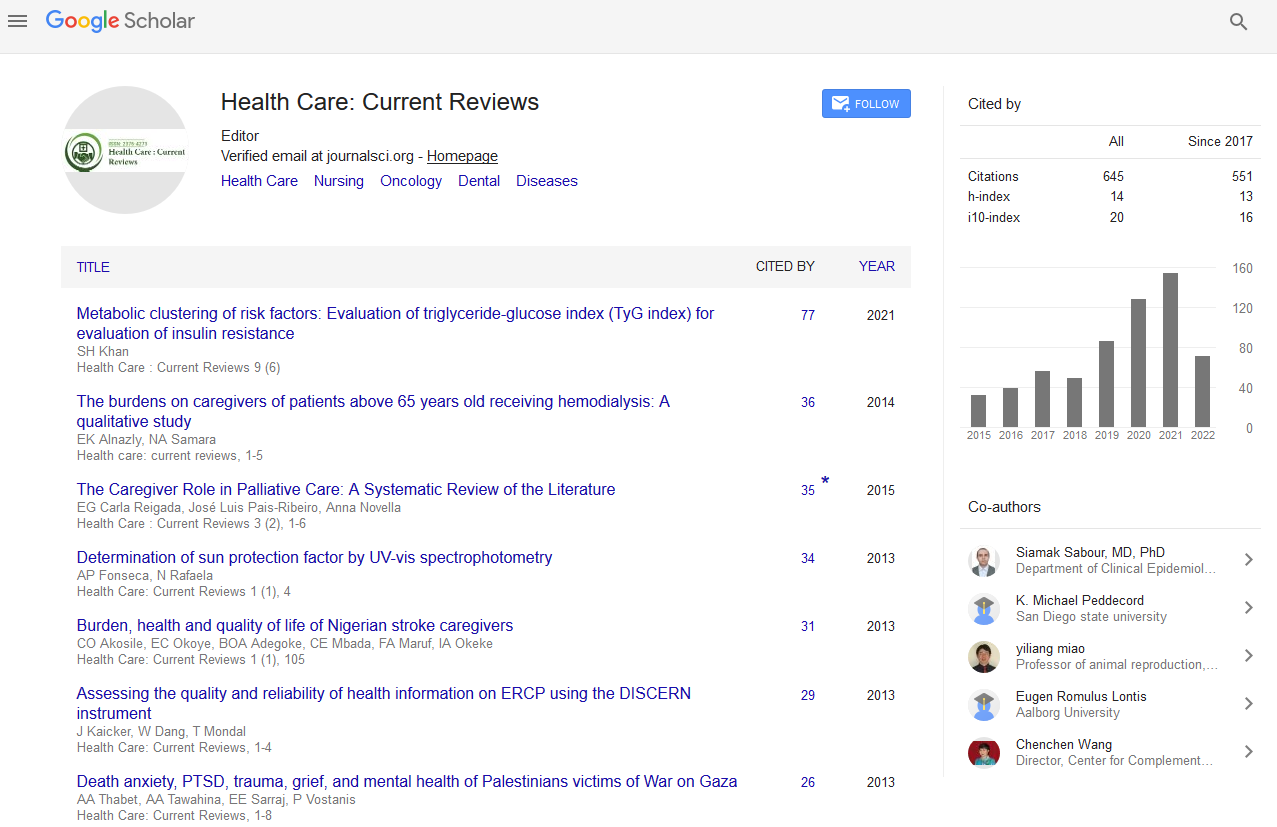PMC/PubMed Indexed Articles
Indexed In
- Open J Gate
- Academic Keys
- RefSeek
- Hamdard University
- EBSCO A-Z
- Publons
- Geneva Foundation for Medical Education and Research
- Google Scholar
Useful Links
Share This Page
Journal Flyer

Open Access Journals
- Agri and Aquaculture
- Biochemistry
- Bioinformatics & Systems Biology
- Business & Management
- Chemistry
- Clinical Sciences
- Engineering
- Food & Nutrition
- General Science
- Genetics & Molecular Biology
- Immunology & Microbiology
- Medical Sciences
- Neuroscience & Psychology
- Nursing & Health Care
- Pharmaceutical Sciences
Engineering personalized medicine in the United Arab Emirates: Diabetes type 2 from diagnosis to therapy
4th Global Summit on Healthcare
November 09-10, 2015 Dubai, UAE
Kinda Khalaf
Khalifa University, UAE
Keynote: Health Care: Current Reviews
Abstract:
At a prevalence rate close to 25%, the UAE has one of the highest rates of type 2 diabetes (T2D) in the world, instigating huge societal costs, not only in terms of morbidity and mortality, but also in lost productivity and an immense burden on the healthcare system. Diabetic neuropathy, the main complication of diabetes, affects the heart, kidney and peripheral nerves and significantly increases the risk of heart attack, kidney failure and amputation, resulting in both significant life and limb loss. Pharmacological treatment is the preferred treatment for diabetes and associated complications. However, the effectiveness of existing medication is controversial and requires a better understanding of the genetic, metabolic and physiological basis of diabetes, as well as the diabetic neuropathy to improve drug delivery and treatment outcomes. Currently, there is no unified model of diabetic neuropathy based on identified genes specific to the Emirati population, which not only leads to an increased risk of diabetes and associated neuropathy but also influences treatment effectiveness. Microbubble drug delivery systems, currently under development, promise to provide better-individualized drug delivery to specific organs and hence better treatment outcomes. In line with the Abu Dhabi 2030 plan and Khalifa University mission of research and community service excellence, our project aims to combine new technologies for identifying target-disease associations starting with the genetic basis and finalizing with enhanced drug delivery and drug candidates by applying genetic-metabolic modelling and data mining to gain a better understanding of the pathophysiology involved in diabetic neuropathy. Our underlying goal is to develop a holistic UAE population-specific model of the disease process along with better drug delivery system that targets specific organs to enhance individualized preventative health care in the UAE.
Biography :
Kinda Khalaf received her BS (Summa Cum Laude with Distinction) and MS (Honors) degrees from the Ohio State University, USA. She received her PhD, also from OSU, in Biomechanics/Computational Biomechanics, specializing in Biomaterials, and Dynamic modelling and control. She has held faculty appointments in Engineering and Medicine at several prestigious Universities including the University of Miami and the American University of Beirut, and currently serves as Associate Chair of the Department of Biomedical Engineering at Khalifa University in Abu Dhabi. She has numerous publications in the areas of Orthopaedic Biomechanics, Computational Biomechanics, biomaterials, and neuro musculoskeletal modelling and control. She is on the list of International Who Is Who of Professionals. She has been awarded various awards and honors including the prestigious National Merit Scholar. She is currently the chairperson of the UAE branch of IEEE, EMBS, in addition to her membership in several professional organizations.
Email: kinda.khalaf@kustar.ac.ae


